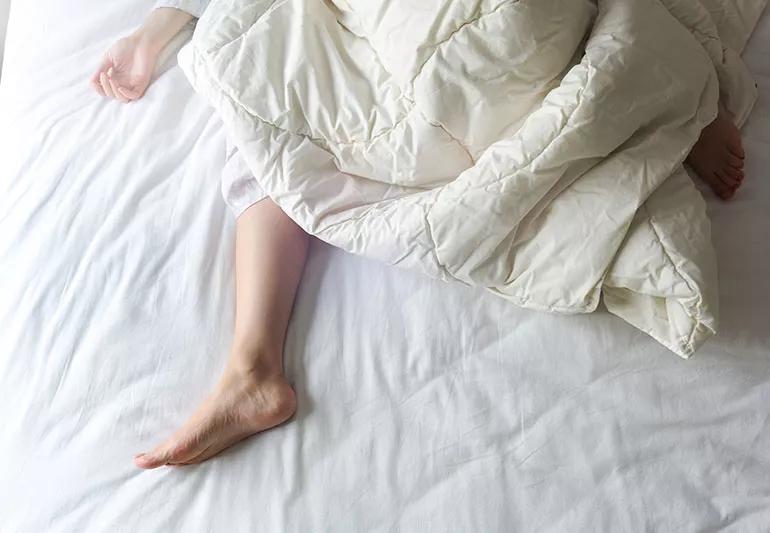The short answer from an interventional cardiologist

Image content: This image is available to view online.
View image online (https://assets.clevelandclinic.org/transform/3e6def2e-d96d-4e67-94f6-3f9e367b3568/RestlessLegSyndrome-831812340-770x533-1_jpg)
A person in bed tangled up in the sheets
A: Anyone who has experienced restless legs syndrome (RLS) knows it’s a strange condition. As soon as you lie down, the urge to move your legs begins. No matter how hard you try, you cannot stop thrashing around or get comfortable.
Advertisement
Cleveland Clinic is a non-profit academic medical center. Advertising on our site helps support our mission. We do not endorse non-Cleveland Clinic products or services. Policy
Although a connection between this strange syndrome and heart disease sounds unlikely, it does exist. Moreover, it was recently discovered that women with RLS are at increased risk of dying from heart disease.
In 2013, a connection between RLS and increased risk of death in men was discovered. The researchers then examined a large cohort of women to see whether women with RLS were also at risk for death from all causes, as well as death from a heart attack, stroke and other cardiovascular diseases.
They were unable to make a definite connection between RLS and all-cause mortality in women. However, they found a significant association between RLS and a higher risk of cardiovascular death after other causes of death were excluded.
There are medications for RLS, but you should be examined for underlying causes like Parkinson’s disease and kidney failure. Iron deficiency is a common cause that can be successfully treated with iron supplements.
We also know that both men and women with RLS are likely to have Type 2 diabetes, obesity, high blood pressure and sleep apnea — all of which increase the risk of heart disease and heart attack.
What this means for you is that in addition to treating the RLS so you can sleep, you will also need to tackle any cardiovascular risk factors you have to reduce your elevated risk of death from a heart attack or stroke.
Advertisement
— Interventional cardiologist Leslie Cho, MD.
Advertisement

Sign up for our Health Essentials emails for expert guidance on nutrition, fitness, sleep, skin care and more.
Learn more about our editorial process.
Advertisement
At-home treatments and lifestyle changes may help ease the symptoms and improve the appearance of varicose veins — but they aren’t a cure
Regular exercise, an iron-rich diet, adequate sleep and bedtime routines that include a warm bath or massage may help with your kid’s RLS
Unlike varicose veins, spider veins don't necessarily indicate poor circulation
Cardio can reduce the appearance of varicose veins, but only temporarily
It could be your feet need a rest, but swollen legs may also be a sign of a serious condition
Some symptoms should be taken seriously
Pain may signal a damaged nerve or herniated disk
Strategies for getting the sleep you need
Prioritize your health by managing stress, strengthening your social connections and getting quality sleep
Bolsters, blankets, pillows and blocks can offer extra support, stability and comfort
Allergies, postnasal drip, asthma or reflux could be to blame for a cough that won’t quit